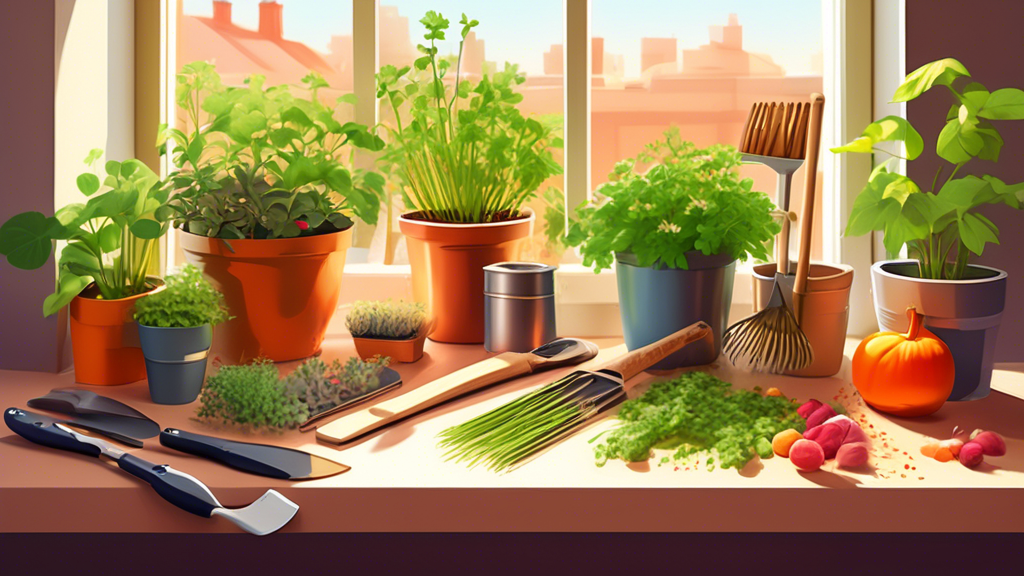Seasonal Herb Garden Care: A Comprehensive Guide
A thriving herb garden fills your home with delightful aromas and fresh flavors, enriching your culinary creations. However, herbs, like all plants, have unique needs that change with the seasons. This comprehensive guide provides insightful tips for seasonal herb garden care, ensuring your herbs flourish year-round.
Spring: Awakening Your Herb Garden
Spring, a season of renewal, marks the perfect time to awaken your herb garden from its winter slumber. Follow these essential tips to nurture your herbs back to life:
Soil Preparation:
Begin by removing any weeds or debris that may have accumulated over winter. Amend the soil with compost or aged manure to enhance its fertility and drainage.
Planting:
Spring is an ideal time to sow seeds of both annual and perennial herbs. Basil, dill, cilantro, and parsley are excellent choices for annuals. Perennial herbs like oregano, thyme, rosemary, and sage can be planted directly into the ground or started indoors a few weeks before the last frost date.
Watering:
Water your herbs deeply but infrequently, allowing the soil to dry out slightly between waterings. Avoid overwatering, as it can lead to root rot.
Fertilization:
As herbs begin their active growth phase, provide them with a balanced, slow-release fertilizer to support healthy development. Follow the package instructions for application rates.
Pest and Disease Control:
Keep a watchful eye out for common garden pests such as aphids, spider mites, and slugs. Use organic pest control methods like insecticidal soap or neem oil to manage infestations.
Summer: Basking in the Bounty
Summer brings warmth and sunshine, creating ideal conditions for herbs to thrive. Here’s how to keep your herb garden flourishing during the summer months:
Watering:
With increased temperatures, herbs require more frequent watering, especially during dry spells. Water deeply in the morning or evening to minimize evaporation.
Mulching:
Apply a layer of organic mulch, such as straw or wood chips, around your herbs to retain soil moisture, suppress weeds, and regulate soil temperature.
Harvesting:
Summer is the peak harvesting season for most herbs. Regular harvesting encourages bushier growth and prevents plants from becoming leggy. Pinch back any flower buds to redirect the plant’s energy toward leaf production.
Pest and Disease Control:
Continue to monitor for pests and diseases, taking prompt action if you notice any signs of infestation or infection.
Fall: Preparing for Winter’s Chill
As summer fades, it’s time to prepare your herb garden for the approaching winter. Follow these steps to ensure your herbs overwinter successfully:
Pruning:
Trim back perennial herbs like oregano, thyme, and sage to encourage new growth in the spring. Remove any dead or diseased branches.
Mulching:
Apply a thick layer of mulch around the base of your herbs to insulate the soil and protect the roots from freezing temperatures.
Watering:
Reduce watering frequency as temperatures cool down. Water only when the soil is dry to the touch.
Protection from Frost:
If you live in an area with harsh winters, consider bringing potted herbs indoors or covering them with a frost blanket to protect them from freezing.
Winter: Rest and Rejuvenation
Winter is a time for your herb garden to rest and rejuvenate. While some herbs may die back completely, others will enter a period of dormancy.
Watering:
Water sparingly during winter, only when the soil is completely dry. Overwatering can lead to root rot, especially in cold temperatures.
Indoor Herbs:
If you have brought herbs indoors, provide them with adequate sunlight, humidity, and air circulation. Water when the soil is dry to the touch.
Planning for Spring:
Winter is an excellent time to start planning your herb garden for the following spring. Research new herb varieties, order seeds, and prepare your garden beds.
Conclusion:
By following these seasonal care tips, you can maintain a thriving herb garden throughout the year, enriching your meals with fresh, flavorful herbs from your own backyard. Remember to adapt these guidelines to your specific climate and the needs of your herbs. With a little care and attention, your herb garden will continue to flourish for seasons to come.


